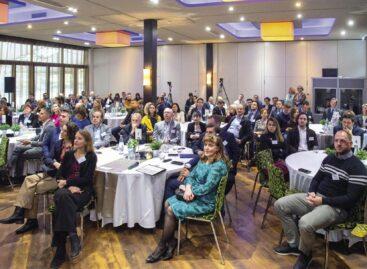Using 30% less materials would be a solution to the climate crisis
The circular economy is a global imperative: it transcends geographical boundaries and requires collaboration between nations, organizations and stakeholders from different backgrounds. This was the key message at the 7th Circular Economy Summit, held on 21 November 2024. BCSDH, together with its professional partners, has been awarded the right to host the 2026 European meeting of the Circular Economy Hotspot.
Global material use has more than tripled since 1970, while the world’s population has only doubled. The extraction and processing of materials is responsible for 60% of the adverse impacts on the climate, more than 90% of biodiversity and water stress related to land use, and around 40% of airborne particulate pollution that is harmful to health.
“Our health and the health of our economy depend on the health of nature, which is declining at an unprecedented rate. The negative impact of humans on nature is becoming increasingly obvious, and in addition to the climate emergency, we now clearly have to reckon with the risk of the collapse of natural systems. In this situation, accelerating the transition to a circular economy is in our common interest, because the resulting reduction in consumption alone would be a solution to many climate and ecological crises. However, this requires cooperation, joint commitments, metrics and actions instead of competition. Immediate action is needed in this area as well.”
– said Attila Chikán, President of the BCSDH, in his speech.
The circularity indicator of global material use is deteriorating. While 9.1% of all raw materials used by the world economy in 2018 came from recycled materials, this figure will only be 7.2% in 2024. Our economy is still on a path of increasing material use, while societal needs could be met with 70% of the current material use. Increasing the level of circularity to this extent would have a significant impact on several ecological tipping points.
Visszajelzés küldése
Related news
ESG: the majority don’t ask for postponement, preparedness level is increasing
🎧 Hallgasd a cikket: Lejátszás Szünet Folytatás Leállítás Nyelv: Auto…
Read more >Related news
Storck Hungária: new sales manager has arrived
🎧 Hallgasd a cikket: Lejátszás Szünet Folytatás Leállítás Nyelv: Auto…
Read more >








